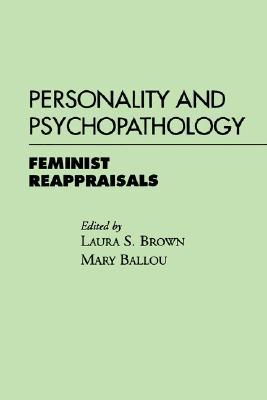

 |

|

The average rating for Personality and psychopathology based on 2 reviews is 1.5 stars.
Review # 1 was written on 2016-02-28 00:00:00 David Dominguez David DominguezSchwartz sets up the post-modern problematic nicely in the introduction to this collection. He asks us, in essence, whether narratives merely tell us about the narrator or can we still learn something about the subject of the narration? It's the old objectivity question all over again ... In the concept of "implicit understandings," we can rescue something of the objectivity of ages gone by ... "Members of each society held ideas, often unstated, of themselves and 'others' and the things that gave them such identities: language, color, ethnicity, kinship, gender, religion, and so on. These understandings were often implicit in the sense of being unstated or assumed, a kind of common knowledge or common sense that did not have to be articulated or codified but that permeated the way in which people thought and acted." (p. 3) On the European side, the ideas of the Reformation and then the Enlightenment led to universalist ideologies and theories of development which posited that some people were "more" and others "less" developed. But the tensions between universalism and exceptionalism are not unique to the Early Modern Europeans, but rather a common trope in many civilizations (Schwartz points to the Chinese history). Seymour Phillips argues that European understandings were based upon observations of other peoples but that they were also conditioned by a powerful mythology, religious beliefs and ancient texts. The superiority which the Europeans brought to the new world was practiced in the anteroom of Europe before crossing the seas, with Irish and Welsh and Baltic peoples already cast as inferiors in Europe itself. John Friedman studies Medieval Maps to understand the conceptions of the world they reveal. He discovers, unsurprisingly, that the maps of Medieval Europe demonstrate the centrality of Christianity and the Europeans themselves. Peter Hulme's study of the Canary Islands as a precursor to the conquest of the Caribbean is enlightening. The Canaries provided both a mental and a military proving ground for conceptions of "the other". The inhabitants were pagan, undressed and "bestial" to the Europeans. When Columbus sailed from the Canaries en route to the "new world," he was carrying with him images of "savages" conditioned by this experience. Indeed, the European conception of gender aided him in categorizing Arawaks as "feminine" and Caribs as "masculine." |
Review # 2 was written on 2012-02-23 00:00:00 Jacob Mermelstein Jacob MermelsteinA good collection of essays, some better than others obviously but overall surprisingly readable for an academic text. I only read the chapters that focused on European/Indigenous contact in the Americas, and those were diverse and fascinating. |
CAN'T FIND WHAT YOU'RE LOOKING FOR? CLICK HERE!!!